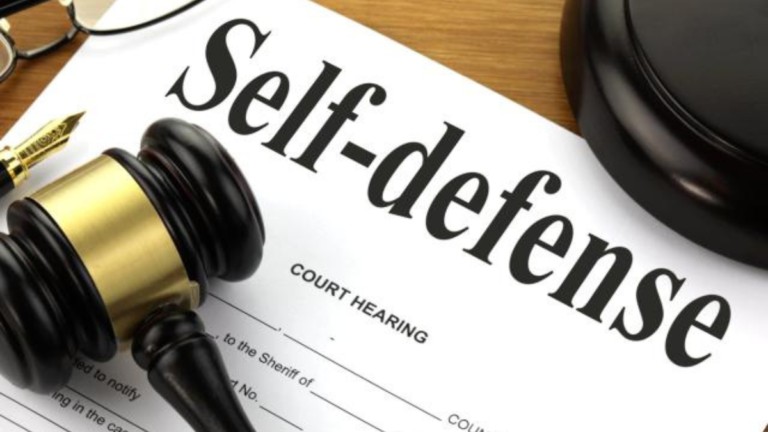Published: Aug. 26, 2024
Last Updated: Nov. 15, 2024

Self-defence is a fundamental legal defence in criminal law that allows a person to use reasonable force to protect themselves or others from harm. When a defendant claims self-defence, they are asserting that their actions, which would otherwise be considered a criminal offence, were justified because they were necessary to prevent imminent danger or harm.

To successfully argue self-defence, several key elements typically must be present:
Imminent Threat: The defendant must have been faced with an immediate threat of unlawful harm. This threat must be real and not speculative or distant. The harm could be physical injury or death, and the threat must be imminent—meaning it is about to occur.
Proportional Response: The force used in self-defence must be proportional to the threat faced. If the threat posed was minor, the use of deadly force may not be justified. For example, using a weapon in response to a non-lethal attack might be seen as excessive.
Reasonable Belief: The defendant must have had a reasonable belief that force was necessary to prevent the harm. This belief is judged from the perspective of a reasonable person in the same situation as the defendant.
Duty to Retreat: In some jurisdictions, there is a duty to retreat before using force if it is safe to do so. However, many places have "stand your ground" laws that remove the obligation to retreat, allowing individuals to use force without first attempting to escape.
No Provocation: The defendant cannot claim self-defence if they were the initial aggressor or provoked the attack unless they withdrew from the confrontation and communicated this withdrawal before the force was used against them.
In application of self-defence in court when a defendant raises a self-defence claim, the burden typically shifts to the prosecution to disprove this defence beyond a reasonable doubt. The court will carefully examine the circumstances surrounding the incident, including the nature of the threat, the actions of both the defendant and the aggressor, and whether the force used was reasonable under the circumstances. Defendants must seek the advice of experienced criminal attoneys who specialize in self-defence cases to ensure their rights are protected and their defence is effectively presented.
Excessive Force: If the defendant uses more force than necessary, the self-defence claim may fail, and the defendant could be convicted of a crime. For example, if someone responds to a fistfight by using a firearm, this might be considered excessive.
Defence of Others: In many legal systems, a person is allowed to use force in defence of others if they reasonably believe that the person being defended is in imminent danger of harm.
Castle Doctrine: Some jurisdictions have specific laws, such as the "Castle Doctrine" which allow individuals to use force, including deadly force, to protect themselves within their own homes without a duty to retreat.
Self-defence is a powerful legal defence in criminal law, but it is subject to strict conditions. The defence hinges on the principles of necessity and proportionality, and it requires that the defendant's actions be both reasonable and in response to an imminent threat. Courts carefully investigate claims of self-defence to ensure that the use of force was justified and that the defendant did not exceed what was necessary to protect themselves or others.













